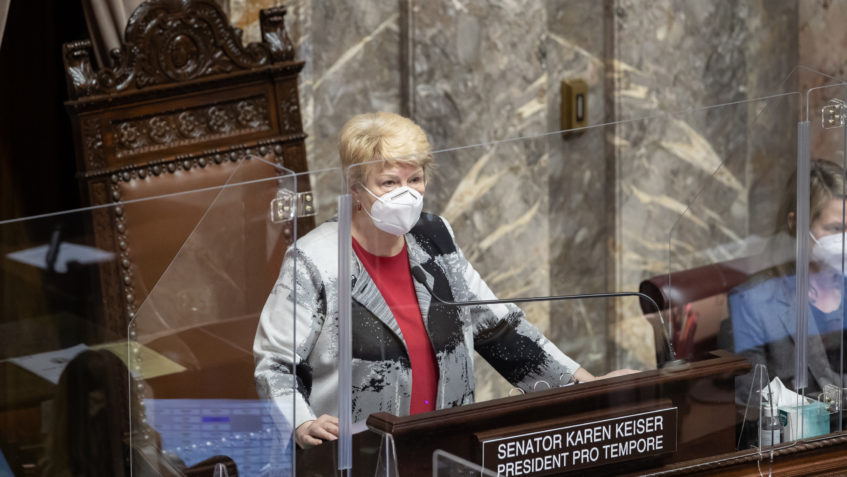OLYMPIA — Washington would be the first state in the nation to bring the 40-hour work week to agricultural workers, some of the nation’s lowest-paid workers, under a bill passed by the Senate today. Farmworkers were exempted from the original federal Fair Labor Standards Act passed in 1938.
A late compromise negotiated by Sen. Karen Keiser (D-Des Moines) and Sen. Kevin Van De Wege (D-Sequim) enabled the legislation’s passage on a strong bipartisan vote of 37-12 just before a key legislative deadline.
“This bill corrects a historic injustice,” said Keiser. “Most workers in America can take the 40-hour work week for granted, but for decades, agricultural workers have not been eligible for overtime pay.”
Under Keiser’s striking amendment to SB 5172, originally offered by Sen. Curtis King (R-Yakima), Washington would establish a three-year phase-in period of the new requirement that employers pay overtime to agricultural workers. Beginning in January 2022, overtime would be due after 55 hours of work in a week; in January 2023, after 48 hours; and in January 2024, after 40 hours.
“This transitional approach improves the safety of an essential and at-risk workforce, increases the public welfare of low-income individuals by removing a historical barrier to their earning potential, and maintains the food security and economic security provided by a stable agricultural sector,” said Keiser.
Dairy workers, unlike other agricultural workers, would immediately be due overtime pay after 40 hours of work in a week, in keeping with the Washington state Supreme Court’s decision in Martinez-Cuevas v. DeRuyter Brothers Dairy, Inc.
In that case, the Court ruled that dairy workers are due overtime pay “because they worked long hours in conditions dangerous to life and deleterious to their health.” Workers who are parties in that suit could be due back pay and damages, with interest, from DeRuyter Brothers Dairy, pending further action by the trial court.
“As the daughter and granddaughter of farmers and farmworkers, I am grateful that we have struck a balance in order to pass this historic legislation that would grant overtime for all agricultural workers, not just dairy workers,” said Rebecca Saldaña (D-Seattle). “I look forward to further collaboration with my colleagues to continue to do what’s right for the hardworking people who keep our state’s agricultural sector producing the food that nourishes us across the state.”
For the approximately 65,000 agricultural workers and 6,000 growers in Washington who are not parties to the DeRuyter lawsuit, the bill would provide certainty by pre-empting lawsuits for back pay filed after the Supreme Court decision was issued on Nov. 5, 2020.
“Uncertainty from the decision regarding overtime standards is compounding the pandemic’s disruptions to the food chain and the safety challenges of operating during a public health crisis,” said Keiser. “This bill will enable our agricultural sector to keep feeding the world.”
While Washington is well known as the national leader in apple production, the state’s agricultural sector is incredibly diverse: Over 300 crops are harvested, and a variety of livestock are raised on more than 35,000 farms across the state. These products go to feed the nation and the world, with agricultural exports exceeding $7 billion annually.
The robust size of the Washington agricultural sector ranks the state in the top 10 nationally in the size of the farm labor force. Agriculture is a cornerstone of the Washington state economy.
SB 5172 will now go to the House of Representatives for consideration. It has until April 11 to be approved by the House to be eligible to become law this year.
The 2021 legislative session is scheduled to adjourn on April 25.





